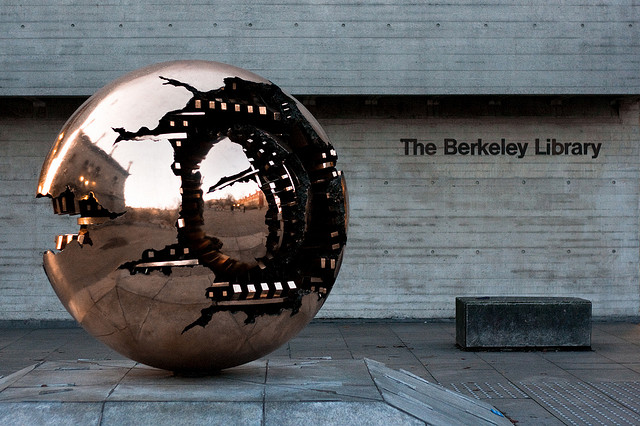Many were surprised and horrified at recent revelations about famed physicist Erwin Schrödinger – revelations which led to the rapid removal of his name from a lecture theatre in Trinity. In contrast, the fact that George Berkeley – philosopher, theologian, bishop and former Trinity student – was a pro-enslavement activist and slave owner himself is not news to many. The enslavement links of the namesake of the library have been exposed many times by various independent newspapers, newspapers within Trinity, scholars from Yale University and Trinity’s own Colonial Legacies Project.
All of these sources have repeated the same charge against Berkeley, namely that in the 1700s, while in Rhode Island, he purchased four enslaved Black men to work in his plantation in Bermuda. Similarly, he conducted religious sermons where he advocated that Christianity could be used as a means to justify the enslavement of a people. In his writings on economics, he compared servitude and enslavement as a means by which to legitimise the latter. Equally objectionable was Berkeley’s support for the Yorke-Talbot opinion, a legal justification for slavery in Britain in the 1730s. He also loosely proposed ideas surrounding enslaving the Irish peasantry of the time.
The case brought forth against George Berkeley is a straightforward one. It is based on the principle that those who champion enslavement throughout history should be recorded but not rewarded. Venerating Berkeley is the aforementioned library, as well as his name being attached to the gold medals given to those with exceptional results in the last year of their undergraduate degree. And yet, although Berkeley has not evaded scrutiny, his legacy has successfully evaded consequences. Trinity are seemingly content to continue with these two prestigious honours being named after a plantation owner.
How has an outdated pro-enslavement relic such as Berkeley managed to slip through the net of revisionism unscathed?
The case brought forth against George Berkeley is a straightforward one, based on the principle that those who champion enslavement throughout history should be recorded but not rewarded
In the aftermath of the murder of George Floyd and the subsequent desire for institutional change, Trinity initiated the Colonial Legacies Project, led by Dr Ciaran O’Neill and Dr Patrick Walsh, to explore Trinity’s links to the wider history of colonisation and the theme of “decolonising the college” became a major one.
On Trinity’s website, the page dedicated to the project calls out Berkeley by name in its opening paragraph. The case of the library’s name is the most precise example of why the project was established – and yet, beyond raising awareness of Berkeley’s problematic nature, no action has thus far been taken. When the project was launched in February 2021, O’Neill said that the project “gives us an opportunity to have a critical conversation about Trinity’s multiple connections to empire”. He failed to mention, however, that after said conversation was had that everyone would proceed to go about their business as if nothing had changed.
The idea of renaming the library has been previously covered, which speaks to Trinity’s lack of progress. In November of 2020, Trinity said it was “addressing” and “reflecting” on its past – but had no immediate plans to rename the Berkeley specifically.
In the immediate aftermath of Floyd’s death, and the worldwide protests for racial justice that ensued, Trinity launched a new Black Studies module run by Dr Philomena Mullen, as well as an Inclusive Curriculum Project. Both great steps forward – however, the impact of both was undoubtedly undercut by College’s failure to tackle the full legacy of one of its most prized alumni.
Trinity is not short of honourable historical figures to replace that of a known slave owner
Elsewhere, the questionable existence of a George Salmon statue being “balanced” with four new busts of female alumni in the Long Room appears to suggest that the steps forward College is taking are merely mitigating the offensive nature of certain relics from an older Trinity. Mitigation is not enough, especially when the problem is as tangible as the case of the naming of the Berkeley library, it is incredibly easy for a change to be made.
Why not, for instance, the Mary Robinson library? The Eavan Boland library? The Priscilla Elworthy library? We are not short of honourable historical figures to replace that of a known slave owner.
When the library was originally opened in 1967, it may have made sense for an intellectual centre to be named after a titan of thought. But there are no two ways about it: Berkeley was a slave owner, complicit in colonisation and supportive of the practice of condemning innocent people to servitude. If College can move rapidly to correct its heralding of certain physicists, there is no reason for the Berkeley name to remain.








